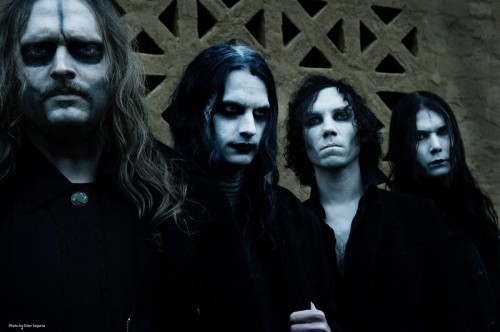Tribulation interview (02/2021)
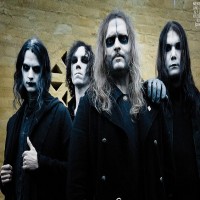
| With: | Adam Zaars |
| Conducted by: | RaduP (video) |
| Published: | 14.02.2021 |
|
Band profile: |
Tribulation |
A Tribulation interview? When has that ever happened before? Though it's been less that two years since our (my) latest, Tribulation has since came out with a new record, further building into their gothic/heavy metal sound, and I also had the chance to talk with Adam instead of Johannes, so I could get different input on the band's creative process and spiritual inspirations. I could also ask if Johannes brought up the Ghost/Type O Negative covers we speculated in our interview [Spoiler: he didn't].
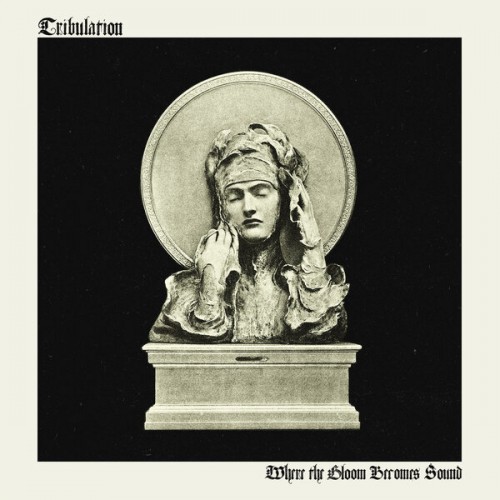
When The Gloom Becomes The Sound
Radu: I have started recording. So we're here with Adam Zaars of Tribulation. How are you?
Adam Zaars: Doing good. How are you?
Radu: I'm great. I just have some friend over who just can't wait for me to finish this interview so we can get to drinking because he finished his last exam. [Ed: What I admire most about Radu is his unflagging professionalism.]
Radu's friend: Helloooo
AZ: Oh, wow. (laughs)
Radu: So thankfully - you said this one has a 30-minute slot, right?
AZ: Yeah, that's right.
Radu: Okay. Then we'll be done in no time. [Ed: Well, you'll be done in 30 minutes.]
So how is it releasing an album without being able to tour immediately?
AZ: Different. It's? I don't know. Ambivalent, I guess. On the one hand, it's a shame, because this is what we do, this is what we've been doing for many years now, and of course promoting the album and getting out to play is important, but on the other hand, it's also - it has been a well-needed time off from touring, I guess. But we wouldn't really want it to go on for that much longer, I guess. (laughs) So now it's been? we haven't really missed a lot of shows. We missed some shows that we were supposed to have during the summer, but now I guess we've already had that break.
Radu: Yeah, I suppose releasing it now is kind of anticlimactic. It was supposed to be something, but then it's just some numbers on the screen. [Ed: We're all just numbers on God's screen.]
AZ: Ah, well, I don't think it's anticlimactic, really, because we've known about it for so long and we could have postponed it, I guess, but we chose to release it now and I don't really have a problem with it. I think people need music now more than ever, maybe -
Radu: Yeah, I can attest to that.
AZ: Yeah (laughs), so in that sense it feels kind of good to release it at this time.
Radu: Okay. And you mentioned previously in another interview that you think of The Children Of The Night as contemporary Stockholm at night, Down Below as Paris at night in the 19th century. What would you say Where The Gloom Becomes Sound is?
AZ: Ha, I just had this question in my previous interview, actually.
Radu: Okay, then tell us who interviewed you and we'll copy/paste it.
AZ: (laughs) Well, what I said was that I'm not feeling as sure about it, because those were very obvious, but it's all very abstract, I guess, and it's more difficult to find out where we are now. On the previous ones, it's been exactly like you said, but it's also been colors in general, and you can see that on - The Formulas Of Death felt very green, Down Below felt very red. But this time around, and this doesn't concern all the songs, but "Funeral Pyre" is called "Funeral Pyre" because I felt it was a fiery song, "Leviathans" is called "Leviathans" because Jonathan [Hultén] felt it was a watery song, and "Daughter Of The Djinn" was also one of the fiery songs for me, so it's still abstract, but it's got more to do with things like that than being in a particular place, I would say.
Radu: Okay. Listening to it now, it feels like less and less of a departure, the way that your albums usually did.
AZ: Yeah, absolutely.
Radu: Why would you say that is? Have you found your sound, or are you getting old?
AZ: (laughs) Well, yeah, getting old, absolutely. The reason why the early albums changed so much was because we always wanted to make music that we could relate to, that we could feel comfortable with releasing, I guess, and never saying that "now we're gonna release an album that sounds like this", but rather just letting that change, happen automatically, and when we did the first albums, that was during years of big changes in all of our lives. The first one we did when we were teenagers, still in school, and heavily involved in - everything we did concerned metal to some extent, pretty much, and seeing the change in between the first album and the third one, I would say really just reflected -
Radu: Your evolution as people in an environment?
AZ: Yeah, exactly, and I guess we haven't changed as much since the third album. That would be my explanation for it.
Radu: Okay. But now there has been a change in the band, with Jonathan's departure.
AZ: Yeah.
Radu: And considering how much of the songwriting is done by him, and now you have another guitarist, which has also been part of Enforcer -
AZ: Yeah.
Radu: How do you expect this to affect songwriting from now on? Have you already started working on an upcoming album? [Ed: Radu, they just had an "upcoming" album until, like, two weeks ago.]
AZ: To some extent, absolutely. I'm always gathering the raw material, I guess. But that's still very, very early in the process.
Radu: Yeah, obviously. But are you feeling a difference?
AZ: Um? I still wouldn't be able to tell, really, because it's mostly just melodies and different riff ideas, and discerning what kind of a song it's going to be is, to me, at least, much later in that process.
Radu: Okay, so it's just pieces of the puzzle now.
AZ: Yeah, exactly, exactly. I mean, we could have gone on now with only me writing the music, but -
Radu: Oh, no. That would be horrible. [Ed: I'm going to start including warnings for the artists when I set up these interviews.]
AZ: (laughs) Maybe, maybe. But I'm very happy that Joseph [Tholl] also wants to contribute to the songwriting. We've always admired his songwriting and he knows what Tribulation is all about. I'm not sure how it's gonna change, but I'm curious to find out.
Radu: I'm curious as well, and especially since you've had a history of changing your sound a lot, don't hesitate to be a bit blasphemous about the sound.
AZ: No, exactly, exactly. You never know.
Radu: You never know. Was the album title taken from the Sopor Aeternus song "Hades Pluton"?
AZ: Yeah, it is.
Radu: Okay. So that's a piece of trivia for everyone. What is the story about for the cover art?
AZ: Well, both the title - the title for the album, really, we took it because we felt it represents the music, and not only the music of this album, but our core idea of Tribulation ever since the first album, and the same is true for the cover. It was also something that we felt represented the music, so in a way the title, the cover, the music, and the lyrics are not connected, but they are all connected to what we feel about the music.
Radu: Okay. I did look through the Metal Archives [Ed: Radu, how could you?] to see different editions of this album. I didn't notice any of them having any covers on it, cover songs, which is weird for your band, especially since you've had The Cure's "One Hundred Years" on two different albums.
AZ: Two different? [Ed: Yes, we covered that in the interview with Johannes Andersson. Didn't you read it?]
Radu: Yeah. Some editions of Down Below and some editions of Children Of The Night, each of them have that cover.
AZ: All right, I wasn't aware of that.
Radu: I thought you would be putting it here as well. For the next seven albums you could make "One Thousand Years". [Ed: HEY THAT'S MY JOKE THAT I MADE IN THE OTHER INTERVIEW]
AZ: Yeah, okay.
Radu: Right around the time that Down Below was released, I had an interview with Johannes, and in it we speculated some covers that Tribulation could do. I want to check if he did come up with something to you or not.
AZ: Not that I can remember, no.
Radu: Okay, so that means that he lied to me. [Ed: Well, you probably insulted his playing and called him ugly or something.] He did mention that you were touring with Ghost at the time, and I asked him about a Ghost song that he would like Tribulation to cover and he mentioned "Monstrance Clock".
AZ: Yeah, okay. [Ed: Adam isn't a Ghost fan, I guess.]
Radu: Anyway, this year marks the 20th anniversary of your first demo. How do you feel about that?
AZ: I hadn't actually thought about it. "Time flies", I guess would be my answer.
Radu: Yeah, you were really young, now that I think about it, when you released that.
AZ: Yeah. Is it 20 years ago?
Radu: Yeah, I checked. It's 2001.
AZ: Yeah, oh yeah, okay.
Radu: You were under a different band name back then; it wasn't actually Tribulation, but it's a long, long time ago.
AZ: No, you're right. Yeah, we were 13 at the time, I guess.
Radu: Back there in Arvika, it's a really, really small town. Is there anything that you can tell us about it and its festival that you can say was really, really impactful for Tribulation? [Ed: Or just really impactful.]
AZ: Anything else? except the festival?
Radu: Well, the festival, obviously, but anything else. I did try to look on Wikipedia to see something interesting about it. I see that it has the largest inland fjord in Sweden, which I didn't even know was possible.
AZ: (laughs) Yeah, well, it's not technically a fjord, actually, but it's the innermost harbor in Sweden, yeah.
Radu: Yeah, so that's interesting.
AZ: Yeah. Didn't really concern me a lot, I guess, when I was growing up [Ed: Dude, harbors are sick, bro], but I guess we had a good group of people we were hanging out with when we were in our later teens. We were not only metal people; some people had pop bands, some people were artists, just creative people of various kinds, and because of this - and this was something I didn't really see when going to bigger cities in Sweden to the same extent - I'm sure that could have had some impact on how Tribulation eventually evolved into something not very strict.

Radu: Okay. A bit of a meta-question: now that you're doing a lot of promo, what is a question that you're really sick of getting asked? [Ed: This one.]
AZ: Um? Should be a lot of them, I guess. Now I can't really remember any single one.
Radu: Should be most of them, maybe.
AZ: (laughs)
Radu: The ones where they keep asking you about gothic influences?
AZ: Yeah, maybe stuff like that. But I guess I'm more tired of my own voice saying similar things in new variations over and over again more than the questions themselves.
Radu: This is, I guess, the downside of call interviews. In an e-mail interview, you could just copy/paste things from the press release and that would be it. [Ed: But then I wouldn't be here, and that would be a shame.]
AZ: Yeah, but I never do; I never copy/paste in those interviews either, so I -
Radu: That's dedication.
AZ: Yeah? well, there are always slight variations in the questions and people need an honest answer.
Radu: That's great.
AZ: But that's why I prefer it this way. E-mailers take a lot of time.
Radu: What's your favorite Fields Of The Nephilim album? [Ed: "The ones where they keep asking you about gothic influences"]
AZ: Uh? The Nephilim. Or, maybe, Earth Inferno, if I can choose a live album.
Radu: That's not my first pick, since I don't think I've heard that one, the live one.
AZ: It was released after Elizium, so it's a combination of pretty much the best songs from all the three first albums.
Radu: Sounds like something I should check out.
AZ: Yeah, absolutely.
Radu: What I did check out now, partly because of Tribulation, is I just watched Hour Of The Wolf because there was a song on the new album by the same title. Is it inspired by the film?
AZ: Oh, Ingmar Bergman. I don't know, actually. It's a Jonathan song.
Radu: Ah, so I'll have to ask him.
AZ: Yeah, I guess so. It could have been partly inspired by that movie, but the hour of the wolf - we call it "the ghost hour" in Swedish, or in Sweden, and it refers to 3:00 in the morning, so it's about -
Radu: The time when most people die and most children are born. [Ed: Is that real? If so, I don't like it.]
AZ: Yeah, and when the most terrible anxiety creeps up on you if you can't sleep.
Radu: Yeah, I remember that. [Ed: Me, too. From when I can't sleep.]
AZ: It's more about that than the movie, but I wouldn't be surprised if he was also inspired by the movie.
Radu: Having just seen it, I can say that it's very gothic, if you can still handle that word after being called it so many times -
AZ: (laughs) Yeah, of course.
Radu: But it's black and white, with really weird angles, a lot of vampirism - it's Bergman's only horror movie [Ed: You don't consider Wild Strawberries a horror movie?] and it's really inspired by the silent era and German Expressionism, so it looks a lot like Nosferatu.
AZ: Yeah, it's a cool movie, absolutely.
Radu: What would you say is your favorite Bergman film?
AZ: Uh? Fanny And Alexander, I think.
Radu: Oh, this is another one I recently watched. I made myself sit through the entire five-hour version. [Ed: Yeah, but he broke Sátántangó into parts because he is a poser. I didn't. I'm dedicated.]
AZ: Yeah, great. It's a good one.
Radu: That's a great pick as well.
AZ: Yeah, they always show it around Christmas in Sweden.
Radu: I can see why.
AZ: Yeah. (laughs)
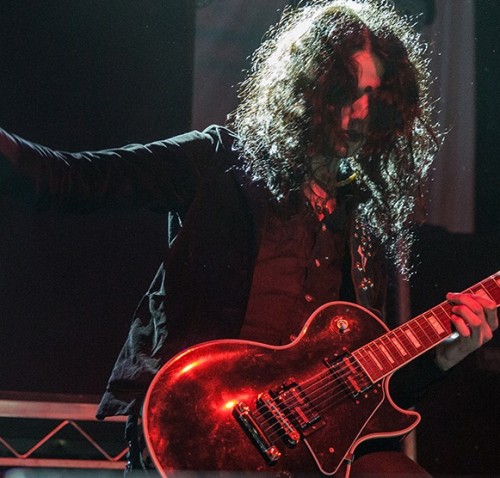
Radu: Would you say there is some other Swedish filmmaker that maybe is being eclipsed by all the art cinephiles being about Bergman? [Ed: Aside from Bergman, I know only five Swedish directors, and of those five, one is actually Danish, one is Norwegian, and two are named David Sandberg. The other is Victor Sjöström.]
AZ: Um? Well, a guy called? what's his name. [Ed: Cool] Bo Widerberg made a lot of good movies in, like, the '60s and '70s. I'm not sure if they - well, any movie could do in an international context as well, I guess, but? Another one that I'm trying to remember his name?
Radu: Or any movie by him and we'll search him up.
AZ: Well, Elvira Madigan is a good one, and what else? it's called Ådalen something, Ådalen 31, I think. But he's got a few good movies. I'm trying to remember the name of this other guy. Let me actually check?
Radu: In the meantime, you can tell us if there is anything going on with Tyrann.
AZ: Ah, well, I don't know that much about that at the moment. I've been so busy with this, with Tribulation, at the moment. I couldn't really help Tobias [Lindqvist] as much as I wanted recently. Joseph has actually been playing guitar for the recent recordings. Yeah, the guy is called Lukas Moodysson.
Radu: Okay, so something with "-son" again. [Ed: Actually, it's "-sson" this time.]
AZ: (laughs) Yeah, always. He did a movie called Fucking Åmål [Ed: Known to the Anglosphere as Show Me Love for obvious reasons].
Radu: Sounds awesome.
AZ: Yeah. One of my favorite movies ever, I think. It was really big when it came out in Sweden, and then I didn't really think about it for a long time, but then I rewatched it twice earlier this year and, again, I'm not sure if people outside of Sweden would notice all the nuances that are so great about it, but in that film he really managed to capture so much of ordinary Sweden at that time, so that could be something to look into.
Radu: Okay. I'll make a case to watch it sometime soon, since now I'm trying to watch a lot of movies from countries that aren't in the Anglosphere, so this is why I watched a lot of Bergman lately. So now we have five minutes for the real important topics. I know that you're a lot into Vedic esotericism, from what I understand.
AZ: Yeah.
Radu: I know a lot of people probably don't know, including myself, don't know really a lot about it, especially since Hinduism is kind of a regional/ethnic thing, it might be a bit weird to think that some guy in Sweden is really interested in that stuff, so other than moms doing yoga, this is quite strange. So if you could explain some of the most important concepts for the general metalhead to understand?
AZ: (laughs) Well, that's a big-ass question, to be honest? I mean, Hinduism is something - even the term "Hinduism" is a modern term that people prior to the 19th century, the Hindus themselves had never heard of, but? Not all of them, but many of their traditions stem from the Vedas. It's very difficult to shortly describe it, because it's been so extremely varied, because it's always been evolving and always been changing.
Radu: And it has a long history.
AZ: And it has a long history. Maybe not as long as some people think, I guess, but nowadays this is what I study at the university, and the reason why, I don't know, really. It's probably got something to do with growing up in late-20th-century secular, modernist, and postmodernist Sweden, there wasn't a lot of mystery and magic to be found, so I guess early I was probably just looking elsewhere, and what was always exciting to me was to see that it's a living tradition that if it would have been closer to Europe it would have been called "pagan", so you could in a sense say that it's a lot of pagan-ish traditions still being practiced -
Radu: Aren't -
AZ: And still being - sorry?
Radu: Aren't all religions pagan? They're just pagan in regards to another religion. [Ed: Ehhhhhhh?.. The word has a loose definition, but I think that's a little too loose.]
AZ: Yeah, I guess, but what would characterize a lot of what could be called pagan could be said about a lot of the Indian traditions. Concepts that were in ancient times, like viewing or regarding a statue, for instance, of a god or a goddess as an actual embodiment of that god or that goddess, they did in ancient Egypt; that's still being done in India in what we call Hinduism, in murtis, as they call them. It's not a symbol of the god or the goddess; when you have initiated or woken the statue, it's actually the god or the goddess, so things like that just made me very interested in it.
Radu: So in a way like they say that bread and wine is actually the body and blood of Jesus Christ?
AZ: Yeah, absolutely, which is not very present in Sweden.
Radu: But Christianity is, to some extent, still there.
AZ: Absolutely, but that's mostly Protestantism.
Radu: Which is admittedly not as fun.
AZ: No, absolutely not.
[Ed: Come join the Catholic Church. We have lovely architecture and no predestination.]
Radu: Perhaps you should have taken some esotericism from your Orthodox brothers in Russia, especially with Rasputin.
AZ: Yeah, interesting figure.
Radu: At least that's a bit more interesting.
AZ: Than Protestantism?
Radu: Obviously. [Ed: To be fair, a bowl of tepid water is more interesting than Protestantism.]
AZ: Yeah.
Radu: So I think our time is up, unless you want to say something else about it.
AZ: Ah, well? can you be more specific? Then I might be able to tell you something more, if you want to know something more.
Radu: What is the most important aspect of your spiritual life?
AZ: Of my spiritual life?
Radu: Yeah.
AZ: Well, that would be? probably? a view of the world in general, I would say, that? I guess I have to say that I'm not Hindu.
Radu: Yeah.
AZ: This is what I'm studying nowadays, but a world that is wider, I guess, or at least different from a purely materialist, reductionist, scientific way of viewing the world. That would probably be the most "everyday" aspect of my spiritual life.
Radu: And trying to achieve a certain connection with that part that is not material through meditation?
AZ: Yeah, that as well, and not only meditation, but it's an approach, I guess, more than anything else for me now. I do more - I study more than I meditate nowadays.
Radu: Well, that's a bit more practical.
AZ: Is it?
Radu: Perhaps. I don't know, since I'm not really a person to meditate, or meditate that often.
AZ: Well, it takes practice.
Radu: Takes practice. So I think you have another interview lined up?
AZ: Yeah, I do.
Radu: Okay, then I'm not taking your time. Is there anything else that you would like to tell to our friends?
AZ: I guess give the new album a go. It's very easy nowadays; just have to stream it somewhere and, if you like it, we would be very glad if you also bought the album. You might like it.
Radu: I hope at least one person does.
AZ: Yeah.
Radu: Okay, thank you very much and have a nice day.
AZ: You, too. Bye-bye.
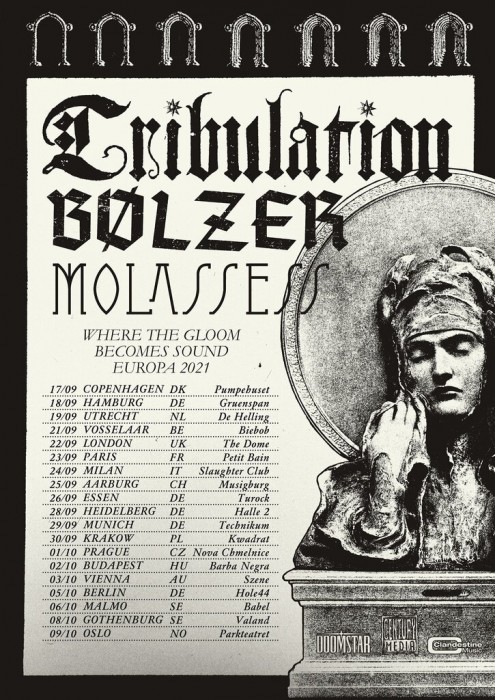
The tour which will hopefully happen.
Thank you to SSUS for taking the time to transcribe it despite us still being in MSA season, and also to nikarg for some of the question ideas, without whom I wouldn't have known about the Sopor Aeternus connection.
 | Posted on 14.02.2021 by Doesn't matter that much to me if you agree with me, as long as you checked the album out. |
Comments
Comments: 13
Visited by: 196 users
| X-Ray Rod Skandino Staff |
| nikarg Staff |
| tintinb Posts: 2028 |
| RaduP CertifiedHipster Staff |
| Uxküll |
| RaduP CertifiedHipster Staff |
| Uxküll |
| nikarg Staff |
| RaduP CertifiedHipster Staff |
| Karlabos |
| RaduP CertifiedHipster Staff |
| Dream Taster The Enemy Within Staff |
| Deadsoulman Elite |
Hits total: 7021 | This month: 31




